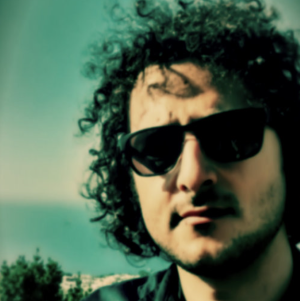I’m an assistant professor at KU Leuven. I am also on the tenure track towards becoming an associate professor. I believe in Germany I am the equivalent of a W1 professor (Juniorprofessor).
I focus largely on digital education settings, where I aim to develop new, qualitative methods to investigate such digital settings. An example of what we do is qualitative website analysis, where we try to make sense of what happens on those websites we use. These kinds of technologies allow us to do so many things, but on the other hand they also steer us in certain directions and assume us to be particular types of persons. Another example is the development of visual network analysis, which is a qualitative method to construct and analyse the visual properties of sociomaterial networks.
I wanted to come to Germany to experience a different approach to social science research. From a Belgian perspective the interdisciplinary approach to the research group here is quite unique, because here there are a variety of different disciplines are all gathered around this central concern of digital media. Whereas in my home country, the other people I see on an everyday basis are all based in educational research, so it’s more of a disciplinary silo. In Germany it all it starts from interconnectedness. I had heard about this in Leuven, but I didn’t just want to read about it, I felt that merely reading the literature is fundamentally different to having the chance to experience it for myself, so I came here to be able to do so.
I came to Siegen because of my close working relationship to Dr. Tobias Röhl, who works at the University of Siegen’s “Media of Cooperation” Special Collaborative Research Center. We have cooperated on many different things in the past, including a winter school in which he was a speaker. I wanted to do some research in Germany, so I asked him which places would be suitable. After narrowing it down to a few options, and following my gut, I ended up choosing Siegen.
We will continue the cooperation between Leuven and Siegen. For example, in January we had a winter school in Siegen that I co-organised together with Inka Fürtig and Jutta Wiesemann about ethnography in digital contexts. In the Summer we are planning to have a second iteration of this in Leuven, and then we hope to come back again to Siegen and to then alternate between both universities.
I am a bit tired of Germans belittling little towns as if they don’t count or are not worth visiting or staying in because they’re not megacities. I find that very strange because why would a city need to be big in order to be interesting? For me there’s nothing wrong with not being Hamburg, Munich, or Berlin. The fact that you’re close to nature, close to the forests, is really fantastic, you can just hop out and be experiencing nature after walking for only two or three minutes.
